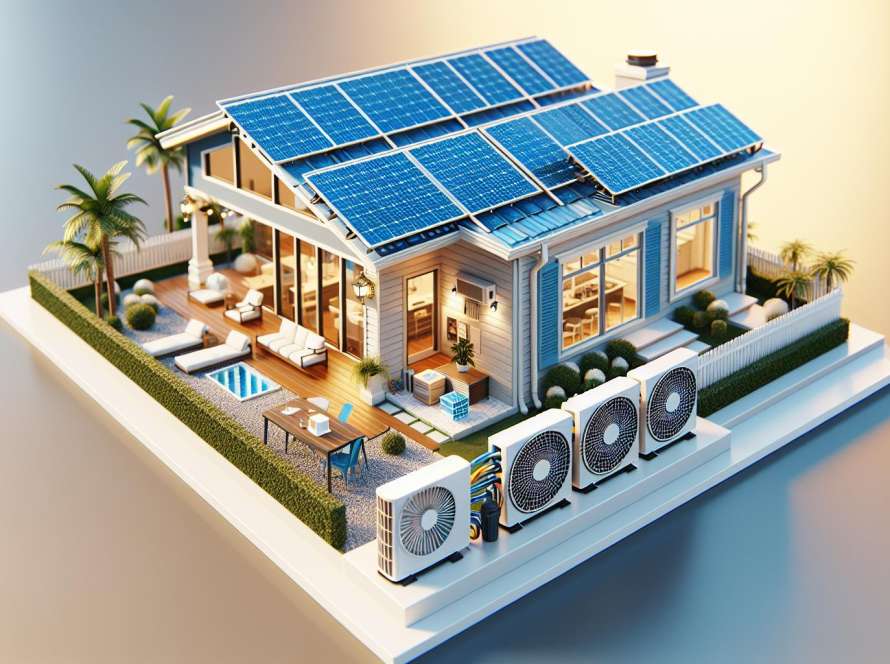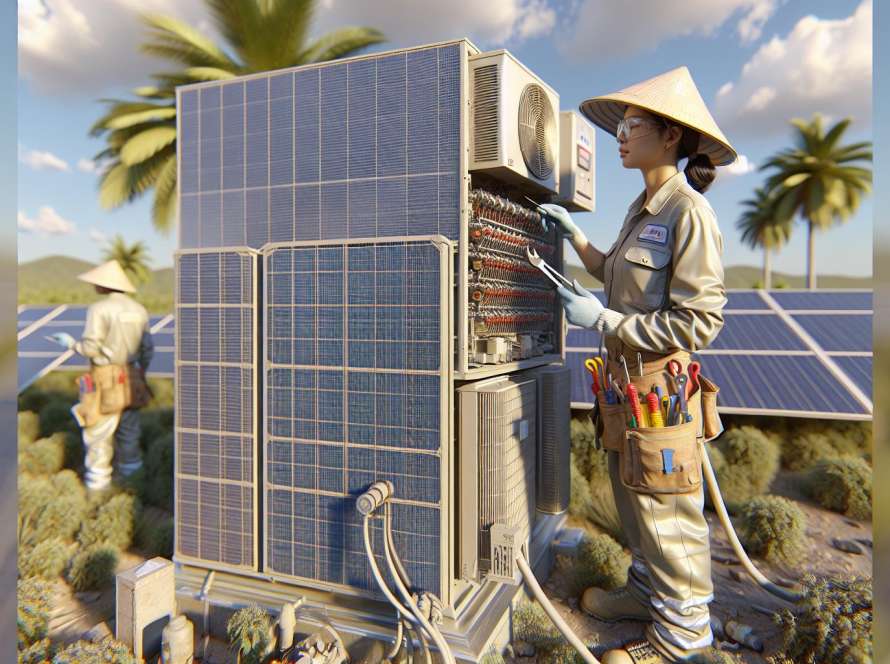So, we all know how brutal the Florida heat can be, especially during those scorching summer months. And let’s face it, our AC units are our best friends during these times. But what happens when they start acting up or not performing at their best? That’s where our optimal AC performance tips come into play.
Proper maintenance is key to ensuring your AC unit runs smoothly and efficiently, especially in a climate like Florida’s. From changing air filters regularly to scheduling annual tune-ups, these simple steps can make a world of difference in keeping your home cool and comfortable.
Importance of Optimal AC Performance in Florida
In Florida’s sweltering heat, maintaining optimal performance of your air conditioning system is crucial for a cool and comfortable living space. Here are some key tips to enhance your AC performance:
For Beginners: Basic Maintenance Steps
- Change your air filters regularly to ensure proper airflow and efficiency.
- Keep the area around your outdoor unit clear of debris and vegetation.
- Program your thermostat to reduce energy usage when you’re away.
For Intermediate Users: Improving Efficiency
- Schedule annual tune-ups with a professional HVAC technician to inspect and clean your system.
- Consider upgrading to a programmable thermostat for better temperature control.
- Seal any air leaks in your ductwork to prevent energy waste.
- Install a zoning system to control temperatures in different areas of your home.
- Upgrade to a high-efficiency AC unit for significant long-term energy savings.
- Utilize smart HVAC technology for remote monitoring and energy management.
In Florida’s climate, proper AC maintenance and optimization are key to a comfortable home environment. By following these tips at varying levels of expertise, you can ensure that your air conditioning system performs at its best, even in the hottest of days.
Regular Air Filter Changes

Regular air filter changes are essential for maintaining optimal AC performance in Florida’s intense heat. Dirty filters can restrict airflow, causing the system to work harder and consume more energy.
For Beginners: Mastering the Basics:
For beginners, we recommend checking the air filter once a month and replacing it every 90 days. Look for filters with a MERV rating of 8-12 for effective filtration without overworking the system.
For Intermediate Users: Enhancing Your AC Performance
Intermediate users should consider upgrading to HEPA filters or electrostatic filters for enhanced air quality. Check the filter monthly and replace it every 60 days to maintain efficiency.
For Advanced Users: Advanced Maintenance Techniques
Advanced users may opt for smart filters that can detect air quality levels and adjust filtration accordingly. Consider UV filters for added protection against bacteria and mold growth in the HVAC system.
Remember, regular air filter changes not only optimize AC performance but also improve indoor air quality and prolong the system’s lifespan.
| Important Point | Detail |
|---|---|
| Check air filter monthly | Replace every 90 days for beginners |
| Upgrade to HEPA or electrostatic filters | Replace every 60 days for intermediate users |
| Consider smart or UV filters for advanced maintenance | Monitor air quality and adjust filtration as needed |
Scheduling Annual Tune-Ups
For Beginners: Understanding the Basics
- Annual tune-ups are crucial for maintaining optimal AC performance in Florida’s heat.
- Schedule a professional HVAC technician to inspect and service your system annually.
- Technicians will check refrigerant levels, clean coils, and inspect for any issues.
- This routine maintenance helps prevent breakdowns and ensures efficient operation.
For Intermediate Users: Enhancing System Efficiency
- Consider upgrading to a programmable thermostat for temperature control.
- Ensure proper insulation in your home to reduce energy consumption.
- Replace air filters every 60-90 days to maintain indoor air quality.
- Schedule bi-annual maintenance for deep cleaning and inspection of your AC system.
- Invest in a smart thermostat for remote monitoring and control.
- Upgrade to a high-efficiency HVAC system to reduce energy costs.
- Consider integrating UV lights in the ductwork for additional protection.
- Implement air duct sealing to maximize airflow efficiency.
| HVAC Maintenance Tips for Florida | |
|---|---|
| Beginners (Monthly Checks) | |
| Check air filter monthly | Replace every 90 days with MERV 8-12 |
| Intermediate Users (Enhanced Filters) | |
| Upgrade to HEPA or electrostatic filters | Replace every 60 days |
| Advanced Users (Smart Technology) | |
| Opt for smart filters that adjust based on air quality | Consider UV filters for added protection |
Enjoy improved AC performance and comfort with regular tune-ups tailored to your expertise level.
Setting Thermostat Correctly
For Beginners: Mastering Temperature Control Basics
- Understanding Optimal Temperatures: Set your thermostat between 76-78°F for a balance of comfort and efficiency.
- Utilizing Programmable Settings: Stick to a consistent schedule to maintain a comfortable environment while saving energy.
- Avoid Drastic Changes: Gradually adjust temperatures by a few degrees to prevent excessive strain on your system.
For Intermediate Users: Fine-Tuning Your Climate Control
- Investing in a Programmable Thermostat: Consider upgrading to a smart thermostat for more precise control and energy savings.
- Utilizing Zoning Settings: Divide your home into zones for customized temperature settings based on usage patterns.
- Implementing Away Settings: Program your thermostat to adjust temperatures when you’re away to avoid cooling or heating an empty house.
- Exploring Smart Home Integration: Integrate your thermostat with other smart devices for seamless automation and energy efficiency.
- Considering Geofencing Features: Enable geofencing to adjust temperatures based on your location for optimal comfort and savings.
- Utilizing Adaptive Learning: Opt for thermostats that learn your habits and adjust settings automatically for maximum efficiency.
| Temperature Recommendation: | 76-78°F |
|---|
Conclusion
Ensuring optimal AC performance in Florida is crucial for both comfort and energy efficiency. By following the recommended thermostat settings based on user levels, individuals can maximize their cooling systems’ effectiveness. From beginners setting their thermostat between 76-78°F to advanced users integrating smart home features, there are options for everyone to enhance their AC experience. Remember, proper temperature control not only keeps you comfortable but also helps in reducing energy costs. Implement these tips to make the most out of your air conditioning system in the Florida heat.

